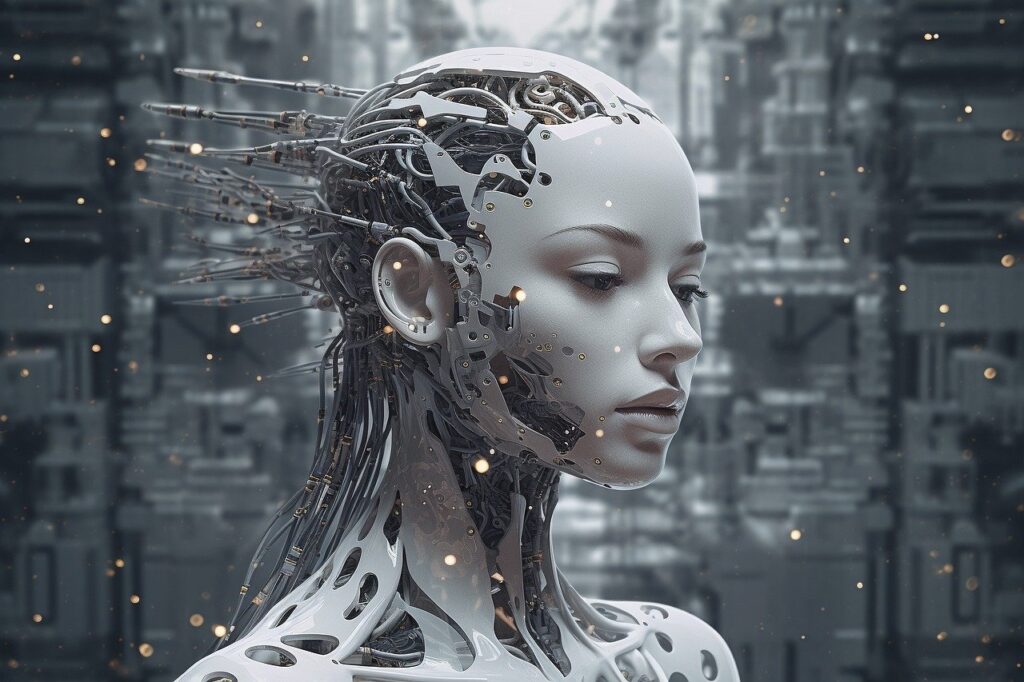
Unveiling the Mysteries of Artificial Intelligence: Concept and Science

What is Artificial Intelligence?
Artificial Intelligence (AI) is revolutionizing our world by simulating human intelligence in machines. These intelligent systems can perform tasks that traditionally require human thought, such as visual perception, speech recognition, decision-making, and language translation. The ultimate aim of AI is to create autonomous systems that can adapt, learn, and improve over time.
The Concept of Artificial Intelligence
At its core, AI is about creating machines capable of intelligent behavior. This broad field encompasses several key components:
- Machine Learning: A cornerstone of AI, machine learning involves algorithms that allow computers to learn from data and improve their performance over time. These systems identify patterns and make data-driven decisions without being explicitly programmed for specific tasks.
- Natural Language Processing (NLP): NLP enables machines to understand, interpret, and generate human language. This technology powers applications like virtual assistants, chatbots, and language translation services, making human-computer interaction more seamless.
- Robotics: AI is integral to robotics, where intelligent systems control robots to perform tasks ranging from simple assembly line operations to complex surgical procedures. These robots can operate autonomously or alongside humans to enhance efficiency and precision.
- Computer Vision: This field allows machines to interpret visual data from the world. Computer vision applications include facial recognition, object detection, and autonomous vehicle navigation, enabling machines to understand and react to their surroundings.
- Expert Systems: These AI programs emulate the decision-making abilities of human experts. By leveraging a vast knowledge base, expert systems can solve complex problems within specific domains, such as medical diagnosis or financial analysis.
The Science Behind Artificial Intelligence
The science of AI is a multidisciplinary field combining computer science, mathematics, cognitive science, and engineering. Several foundational concepts drive AI development:
- Algorithms and Data Structures: Algorithms are step-by-step procedures for solving problems, while data structures organize and store data efficiently. In AI, algorithms process data, learn from it, and make decisions, forming the backbone of intelligent systems.
- Neural Networks: Modeled after the human brain, neural networks consist of interconnected nodes (neurons) that process data. These networks learn to recognize patterns and make decisions, powering applications like image and speech recognition.
- Deep Learning: A subset of machine learning, deep learning involves neural networks with multiple layers. These deep neural networks excel at analyzing large datasets, making them ideal for tasks such as natural language processing and autonomous driving.
- Probability and Statistics: AI systems often use probabilistic models to make predictions and decisions. These models analyze data to infer patterns and make informed guesses about future events or unknown variables.
- Optimization Techniques: Mathematical optimization methods are used to find the best solutions among various options, given certain constraints. In AI, optimization fine-tunes algorithms to enhance their performance.
Applications and Implications
AI’s applications are vast and ever-expanding. In healthcare, AI diagnoses diseases, personalizes treatments, and manages patient care. In finance, AI analyzes market trends, detects fraud, and provides investment insights. Autonomous vehicles, powered by AI, promise to revolutionize transportation by improving safety and efficiency.
However, AI also poses ethical and societal challenges. Issues like job displacement, privacy concerns, and algorithmic bias require careful consideration as AI technology continues to evolve.
TRY OUR FREE AI EBOOK
Benefits of the “Insta AI Growth Hacking Book”:
- Uncover secret strategies: Learn how to be influential without revealing your face.
- Using artificial intelligence: Discover how AI can accelerate your growth on Instagram & Co.
- Maximize reach: Learn how to convert your increased reach into income.
- Exclusive tools and resources: Get access to valuable resources to ensure your success.
Don’t miss this opportunity and get started now. Get the know-how you need to be successful on Instagram – and it’s accessible at any time, immediately after your purchase.
Conclusion
Artificial Intelligence is a transformative force reshaping our world. By mimicking human intelligence and learning from data, AI systems perform complex tasks with increasing accuracy and efficiency. Understanding AI’s concepts and science is crucial as we navigate its applications and implications in various facets of life. As AI advances, it offers solutions to some of our most pressing challenges while demanding thoughtful deliberation on its societal impact.
Unlock the potential of AI and stay ahead in the ever-evolving digital landscape.


